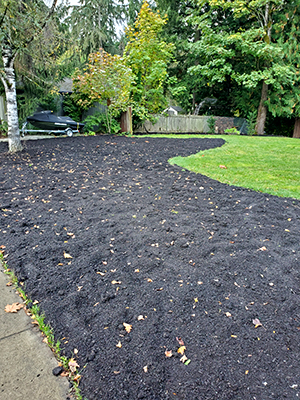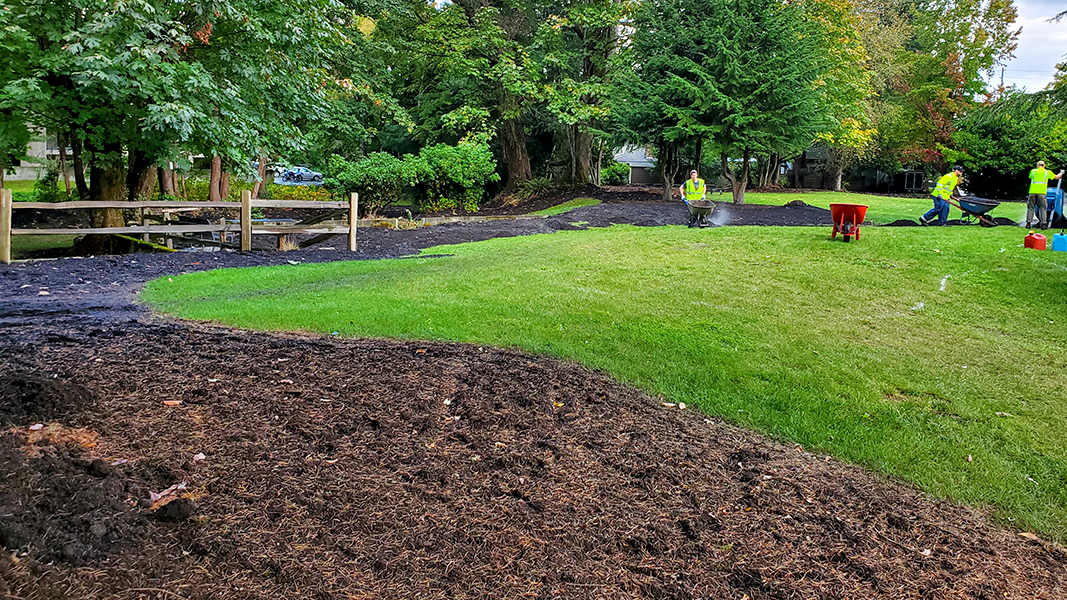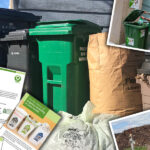Karen Dawson
House Bill 2713, Compost Procurement and Use, was passed by the Washington State legislature in the 2020 session, becoming law on June 11. The procurement law ensures that compost created from municipal recycling programs moves onto state, county and city projects so that all of the benefits of compost can be captured. It also encourages cities with organics collection to enter into compost buy back agreements with their organics processors, closing the loop on their organics recycling programs.
“Directing organic materials from landfills into generating compost conserves landfill capacity, keeps high methane producing materials out of landfills, and creates a product that can filter storm water, helping to restore salmon, brings nutrients to our soil for our farms and lands recovering from forest fire, and helps sequester carbon for our planet,” said Washington State Representative, Amy Walen, prime sponsor of the legislation.
Washington State’s compost manufacturers divert hundreds of thousands of tons of yard trimmings and food scraps from the landfill, decreasing carbon emissions. Composting infrastructure is well distributed so that organic waste can be processed often within the same zip code it is generated.
Elements Of The Law
Washington State House Bill 2713 stipulates that state agencies and local governments are required to consider whether compost products can be used in government-funded projects when planning or soliciting and reviewing bids. If compost products can be utilized in the project, the agency or local government must do so, subject to the following exceptions:
- Compost products are not available within a reasonable amount of time
- Compost products that are available do not meet existing purchasing standards or federal or state health and safety standards
- Compost purchase prices are not reasonable or competitive
A state agency is also not required to use compost products in a project if the total cost of using compost is financially prohibitive; application of compost will have detrimental impacts on the physical characteristics and nutrient condition of the soil as it is used for a specific crop; the project consists of growing trees in a greenhouse setting, including seed orchard greenhouses; or the compost products that are available have not been certified as being free of crop-specific pests and pathogens, including pests and pathogens that could result in the denial of phytosanitary permits for shipping seedlings.
 Purchase priority is to be given to local compost producers that are certified by a nationally recognized organization, and whose products are derived from municipal compost programs. Before compost products are transported or applied for government projects, compliance with Department of Agriculture pest control regulations must be ensured.
Purchase priority is to be given to local compost producers that are certified by a nationally recognized organization, and whose products are derived from municipal compost programs. Before compost products are transported or applied for government projects, compliance with Department of Agriculture pest control regulations must be ensured.
Purchasing Agreements
Each local government that provides a residential composting service is encouraged to enter into a purchasing agreement with its compost processor to buy back finished compost products for use in government projects or on government land. The law suggests purchasing an amount of finished compost product that is equal to or greater than 50% of the amount of organic residuals it delivered to the compost processor. Local governments are authorized to enter into collective purchasing agreements if doing so is more cost-effective or efficient. The compost processor should offer a purchase price that is reasonable and competitive for the specific market.
When purchasing compost products for use in government projects or on government-owned land, local governments are encouraged to purchase compost with at least 8% food waste, or an amount of food waste that is commensurate with that in the local jurisdiction’s curbside collection program.
Karen Dawson is director of public affairs at Cedar Grove, a King County compost manufacturer.











